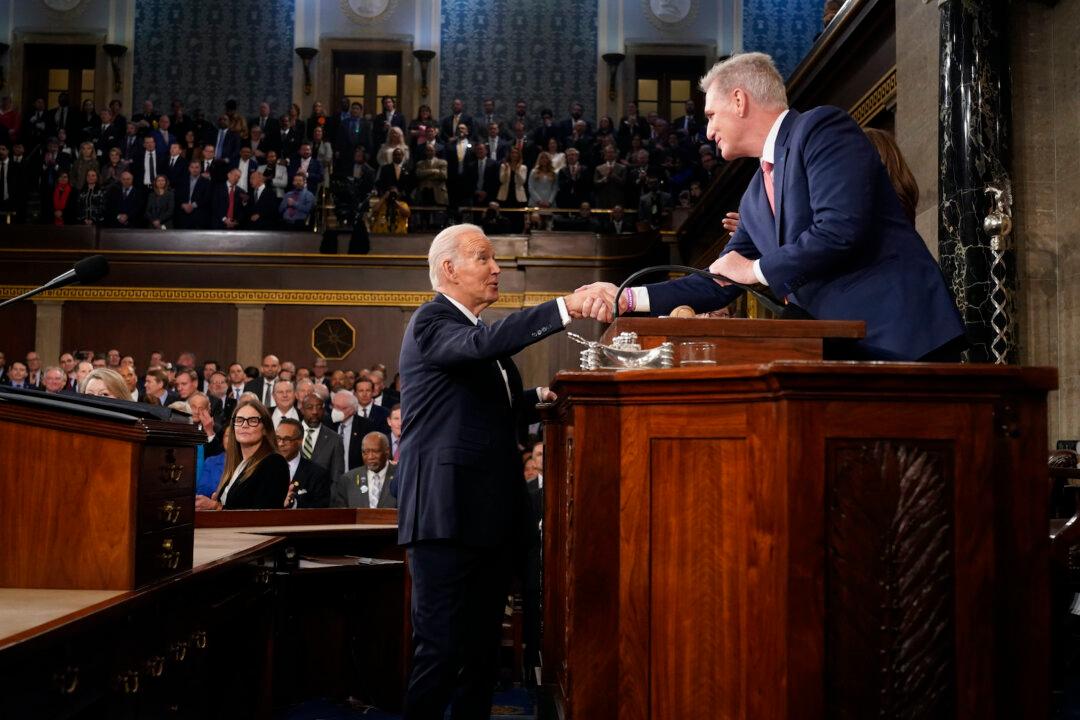As President Joe Biden prepared to welcome House Speaker Kevin McCarthy (R-Calif.) to the White House on May 9 to resume their debt ceiling negotiations, the pressure for the president to bend on the issue was on the rise.
The meeting—which will also involve Senate Majority Leader Chuck Schumer (D-N.Y.), Senate Minority Leader Mitch McConnell (R-Ky.), and House Minority Leader Hakeem Jeffries (D-N.Y.)—comes as Biden faces disappointing poll numbers and a united Republican front.





